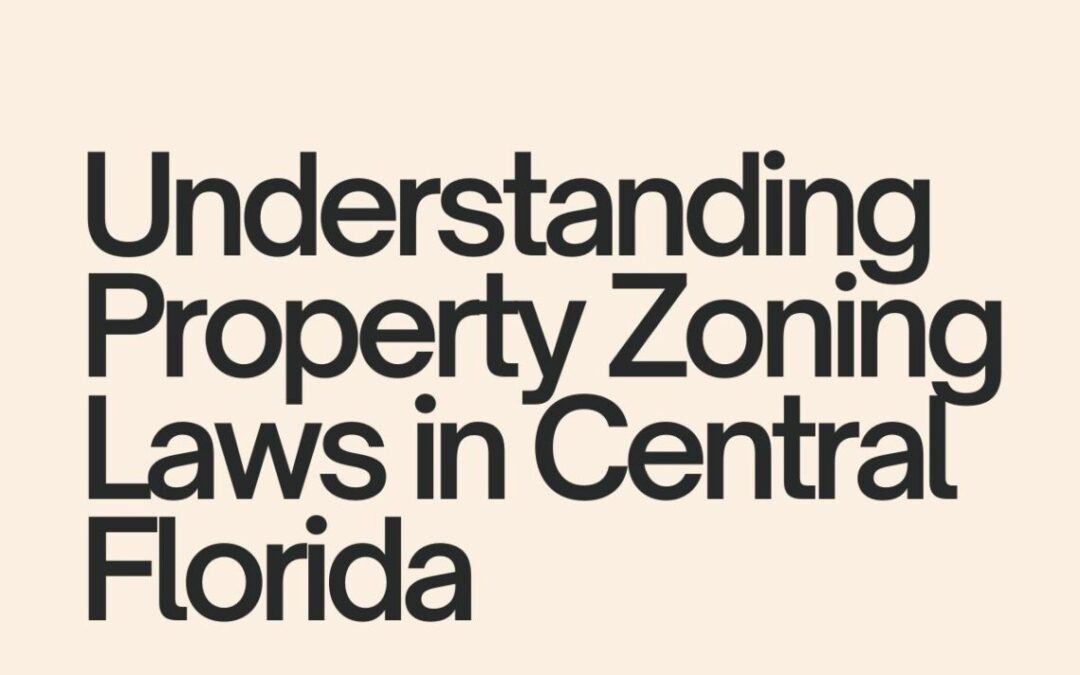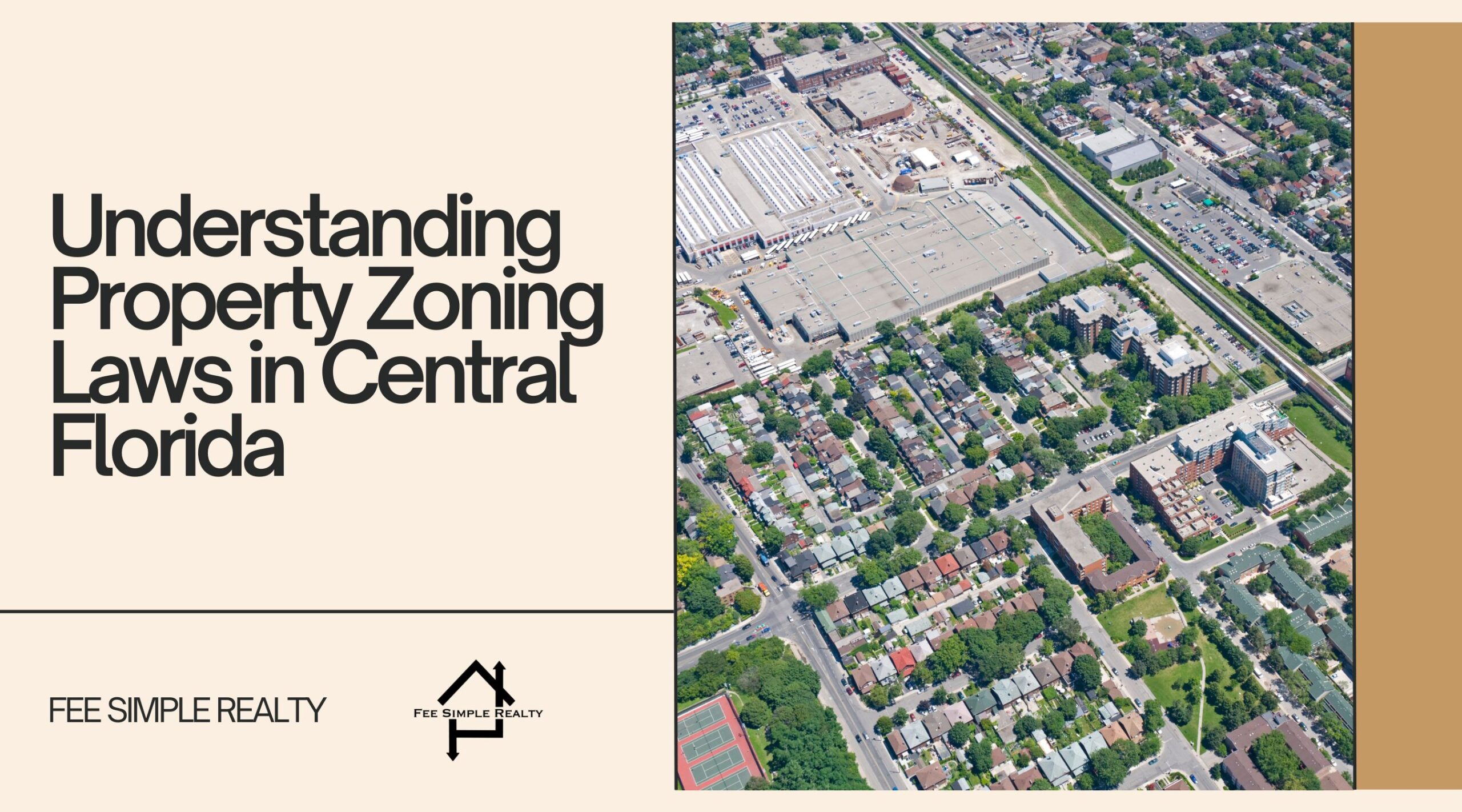Understanding Property Zoning Laws in Central Florida
Property zoning laws play a crucial role in real estate by determining how land can be used. Whether you’re a homeowner, investor, or developer, understanding Central Florida’s zoning laws is essential to make informed decisions. This post explores the understanding property zoning laws in Central Florida, how it affects property use, and tips to navigate these regulations effectively.
Overview: Key Aspects of Zoning Laws
Key Topics:
- What Are Zoning Laws?
- Types of Zoning in Central Florida
- How Zoning Affects Property Value
- The Process of Requesting a Zoning Change
- Tips for Ensuring Zoning Compliance
Detailed Breakdown: Understanding Property Zoning Laws
1. What Are Zoning Laws?
Simple Explanation and Takeaway: Zoning laws define how land can be used within a specific area.
In-Depth Analysis: Zoning laws are local regulations that specify whether a property can be used for residential, commercial, industrial, or mixed purposes. These rules help maintain organized development and protect property values by separating incompatible land uses.
Example or Tip: Use the local county’s zoning map or consult with a real estate agent to verify a property’s zoning designation before purchasing.
2. Types of Zoning in Central Florida
Simple Explanation and Takeaway: Central Florida zoning includes residential, commercial, agricultural, and more.
In-Depth Analysis: Zoning categories include residential (single-family or multifamily), commercial (retail, office space), industrial (manufacturing, warehouses), and agricultural (farming or rural land). Some areas offer mixed-use zoning, combining residential and commercial spaces.
Example or Tip: If you’re considering investing in rental properties, check for zoning that allows for multifamily housing.
3. How Zoning Affects Property Value
Simple Explanation and Takeaway: Zoning impacts a property’s value by determining its potential use.
In-Depth Analysis: Properties in highly desirable zones, such as commercial areas near tourist attractions in Central Florida, tend to have higher values. Conversely, properties with restrictive zoning may have limited uses, affecting their marketability and price.
Example or Tip: Research zoning restrictions if you plan to build on or expand the property to ensure compliance with local regulations.
4. The Process of Requesting a Zoning Change
Simple Explanation and Takeaway: Zoning changes can be requested but require local government approval.
In-Depth Analysis: If a property’s zoning doesn’t meet your intended use, you can request a zoning variance or rezoning through your local government. This process involves submitting an application, attending public hearings, and justifying your request.
Example or Tip: Work with a zoning attorney or consultant to strengthen your application for rezoning.
5. Tips for Ensuring Zoning Compliance
Simple Explanation and Takeaway: Staying informed about zoning laws prevents fines and legal issues.
In-Depth Analysis: Failing to comply with zoning laws can result in penalties or project delays. Regularly review local ordinances and consult professionals before starting renovations or construction projects.
Example or Tip: Always request a zoning compliance letter from your local government when considering significant property changes.
Conclusion
Understanding zoning laws in Central Florida is crucial for maximizing property value and ensuring compliance with local regulations. From verifying zoning designations to navigating rezoning processes, being informed empowers you to make smarter real estate decisions. Whether you’re buying, building, or investing, zoning knowledge is key.
If you are having issues beyond basic information, please contact your county government department.
Contact us today or visit our Instagram | Facebook .

